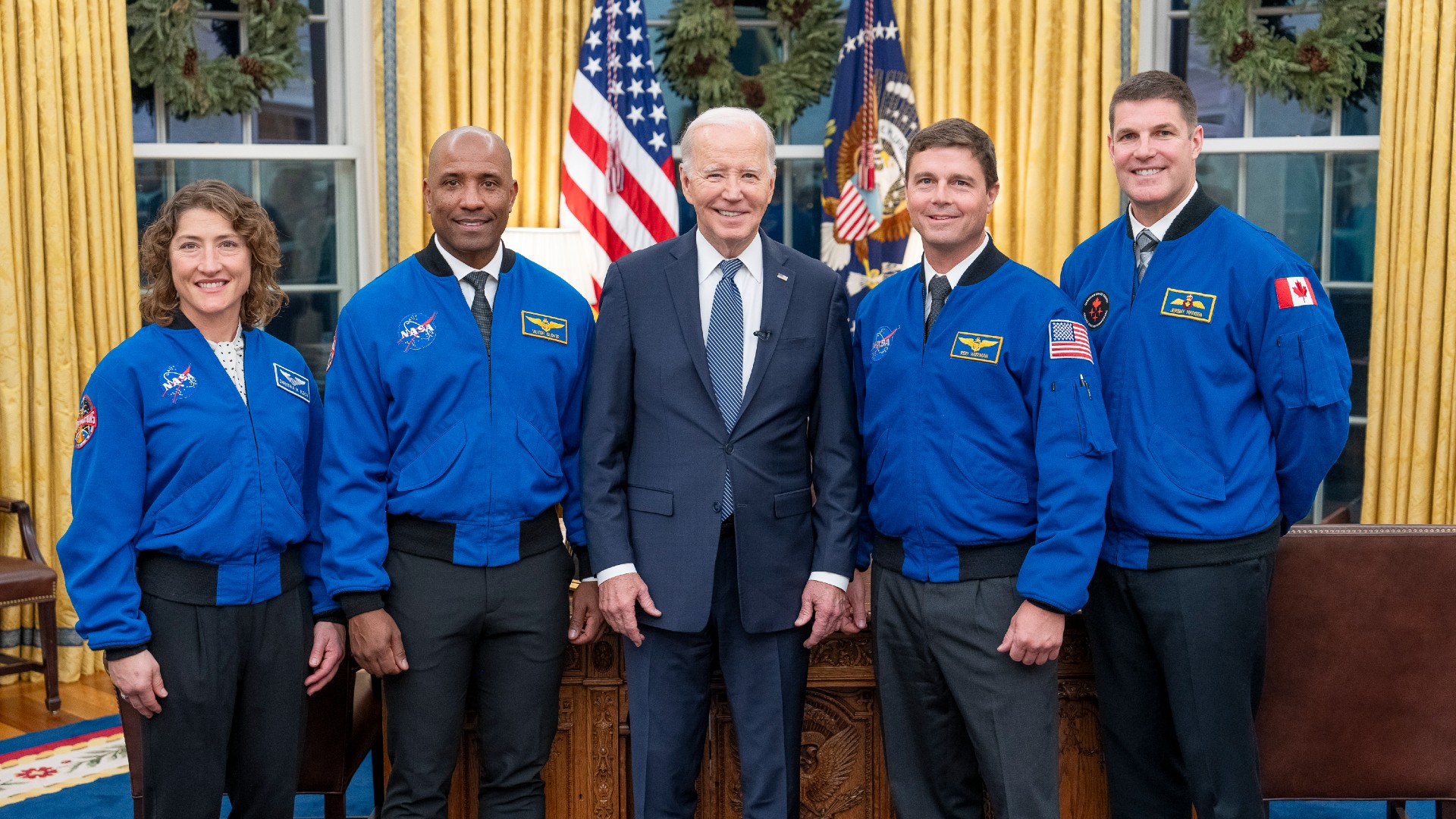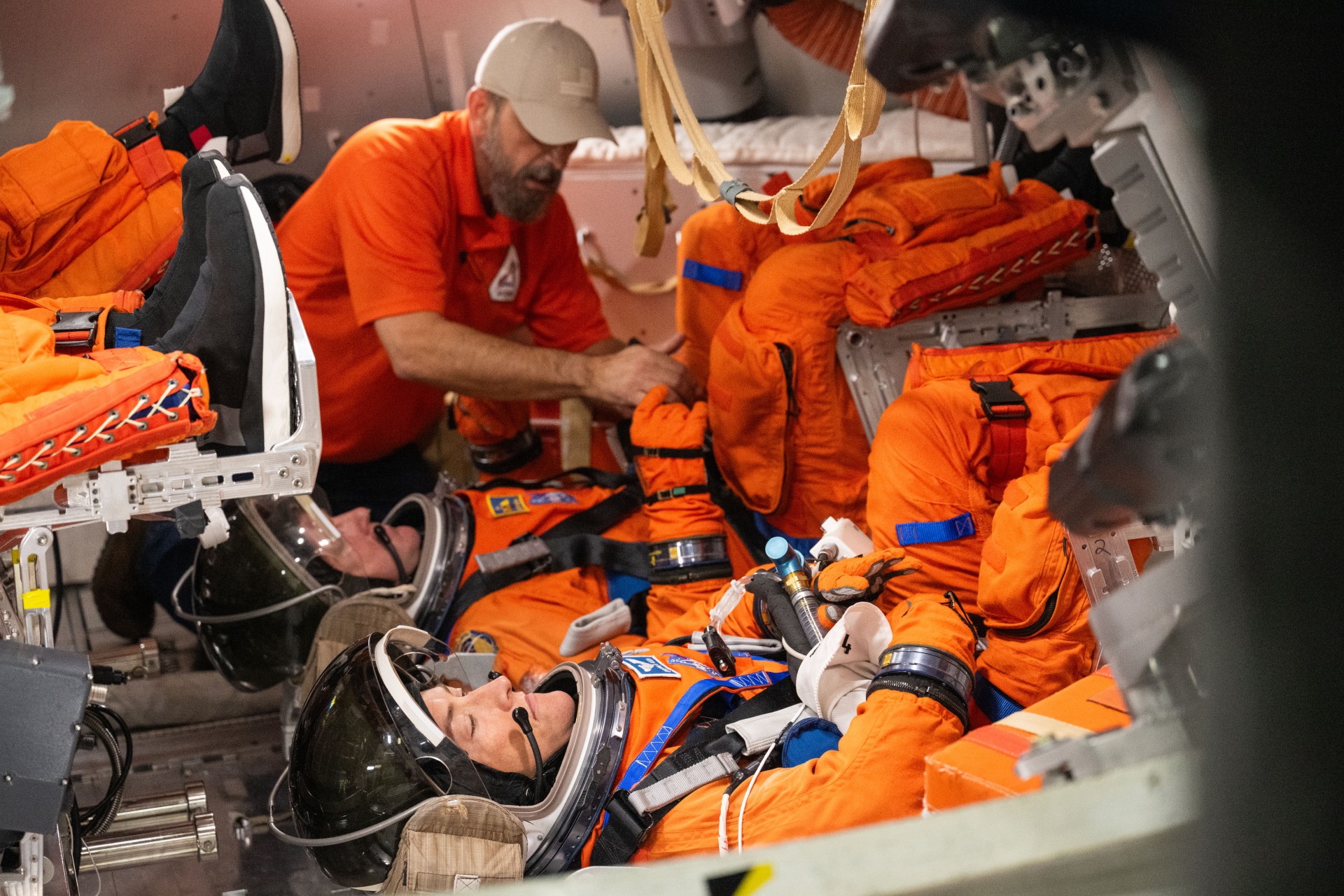
The next astronaut crew to visit the moon talked space policy with U.S. President Joe Biden and U.S. Vice-President Kamala Harris, according to various posts on Tuesday (Dec. 19).
New details about the Dec. 14 White House meetings for the four Artemis 2 astronauts, slated for a round-the-moon mission in 2024, were released just ahead of the next National Space Council meeting later today (Dec. 20).
The gathering with Biden saw the crew "thank him for his leadership and discuss their upcoming flight test," according to a press release from NASA, alongside a newly released photo of the president with the four astronauts. (A NASA account on X, formerly Twitter, said last week that the crew also discussed "their training and science plans for the mission.")
Biden's X statement on Tuesday said it was an honor to have the crew in the Oval Office. "Here on Earth, our children will learn the names of these pioneers," the post stated. "And it's the Artemis generation who will carry us into the future we hope to build for the benefit of all."
Related: Artemis 2 astronauts meet President Biden to talk America's next trip to the moon
Artemis 2 includes four astronauts: NASA commander Reid Wiseman, NASA pilot Victor Glover (who will become the first person of color to leave low Earth orbit), NASA mission specialist Christina Koch (the first woman) and Canadian Space Agency mission specialist Jeremy Hansen (the first non-American).
Artemis 2 is fully funded for launch, and most of its hardware systems were tested on an uncrewed lunar venture known as Artemis 1 in 2022. Future Artemis program missions are still being negotiated. NASA has said it hopes to place Artemis 3 on the moon in 2025 or 2026, pending the readiness of key items such as the SpaceX Starship landing system and privately-made spacesuits. (The agency's Government Accountability Office recently suggested 2027 may be more realistic.)
Related: President Biden, VP Harris hail NASA Artemis 1 moon rocket launch and its 'limitless possibilities'

The Biden administration requested $27.2 billion for NASA in the White House's 2024 budget request in March, a 7% increase over 2023; that budget is still under review. For now, the agency is under a continuing resolution at 2023 spending levels until February. (NASA's share of the projected $6.8 trillion budget for the U.S. government is tiny in comparison, however.)
The office of Harris, the chair of the National Space Council, released video clips on X on Wednesday of the Vice-President's meeting with the crew.
"We've been lucky to travel the world the last few months, and to thank the folks that have been working on the rocket, working on this program," Wiseman told the Vice-President. "This leadership has done an awesome job of continuing the exploration legacy," he added.
"Hopefully, our moonshot is going to inspire people to do other moonshots," Koch told the Vice-President. "Whatever the challenges of our world are, we hope to demonstrate that when you come together — even internationally, especially — you really can take those on," added Koch.
Artemis — as Koch alluded to— is run under the NASA-led Artemis Accords, a U.S. policy for peaceful space exploration that now includes 33 nations. A subset of those partners, including Canada, are contributing hardware to the moon missions in exchange to seats.
"All that you guys are doing, it's the best of who we are as a nation," Harris told the astronauts. Her X account added that the crew's "leadership and ingenuity" is bringing the United States "one step closer to returning to the moon."







